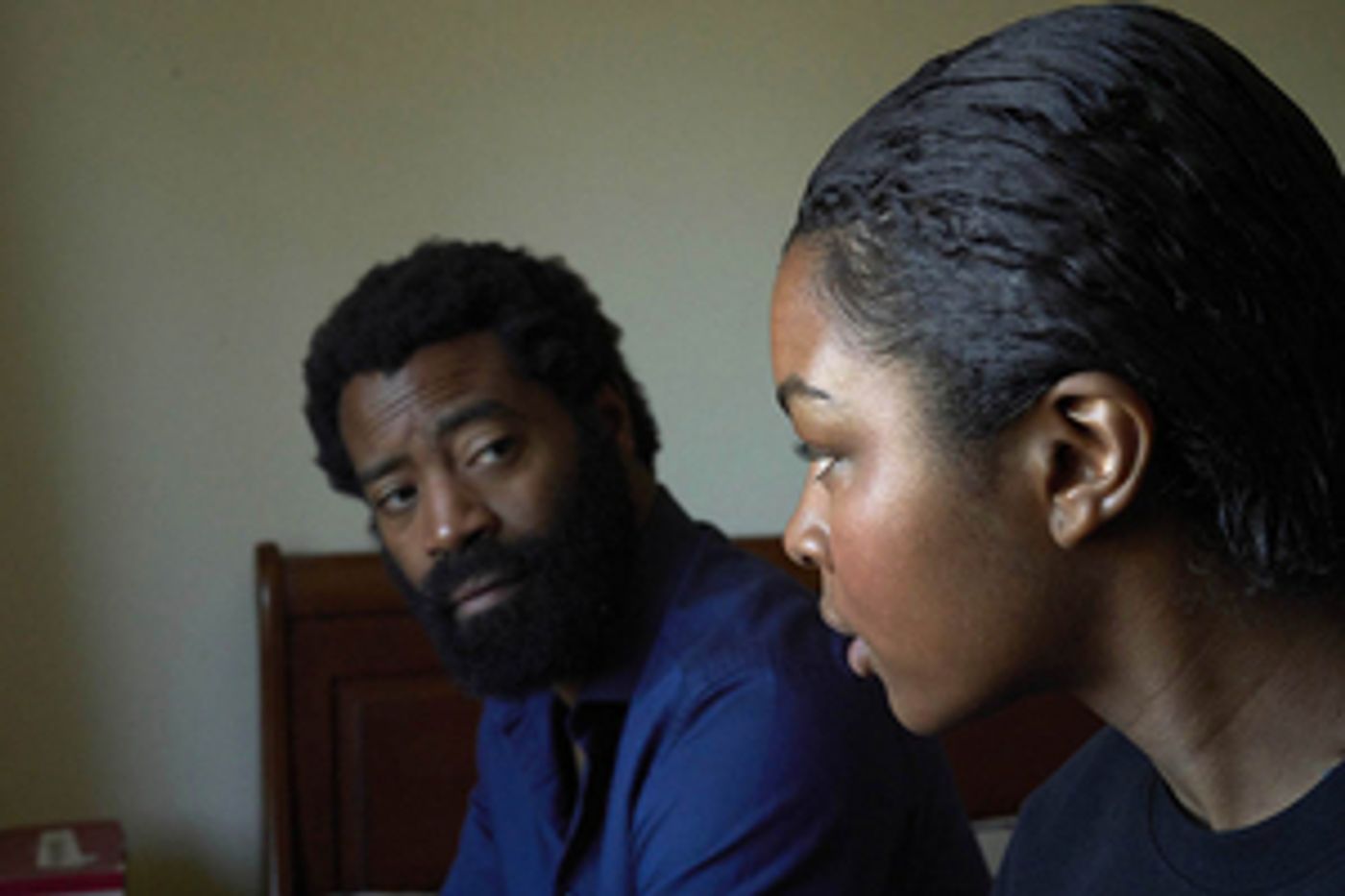Review: UNSAID STORIES, ITV
ITV's response to the resurgence of the Black Lives Matter movement

![]()
This week has seen the launch of ITV's new series, Unsaid Stories. Comprised of short 15-minute films that respond to the Black Lives Matter movement, the project was made in July under Covid-19 filming restrictions.
The films are part of ITV's own efforts to enhance diversity and representation in their work, after the Black Lives Matter movement has exposed the need for companies and individuals to address systemic racism. The launch of their 'Diversity Acceleration Plan' on 9 July follows the lead of many other media outlets and arts organisations.
It perhaps comes as no surprise that ITV was somewhat late to the party, as a more commercial network than their counterparts at the BBC and Channel 4. Unsaid Stories is a similar format to Channel 4's series of short films make by black British filmmakers, Take Your Knee Off My Neck, which first aired on 15 June.
ITV's attempt to showcase black creatives and to address issues such as police brutality, relationships and colourism, though well intentioned, unfortunately often falls flat. While its cast is incredibly strong, and its subject matter deeply important, the shows' writing feels at times soapy and contrived.
Episode One of the series, titled "Generational", follows a black father (Nicholas Pinnock) who tries to stop his 16-year-old daughter (Yasmin Monet-Prince) from attending a BLM march. The film has a sadly predictable twist, as Oliver sits down with his daughter to explain the real reasons why he won't let her go to the march. The story he tells is one of racial violence and police negligence.
Written by Jerome Bucchan-Nelson (who has previously worked on EastEnders, Holby City, Emmerdale and Hollyoaks), and produced by Barbara Emile (best known for her work on EastEnders), the overly sentimental tone of the writing often detracts from the emotional force of the story. The ending of the film consolidates that, as the filming makes a point of father and daughter donning masks and gloves, as they head out to the march together.
Episode Two is more nuanced, exploring the interaction between issues of class and race. In this film, middle-class Thea (Adelayo Adedayo) bumps into her white, working-class ex-boyfriend Tom (Joe Cole) at a party. Thea explains why Tom's unwillingness to listen to her about her experiences of racism led to their break-up. This episode is more complex, with no happy resolution at the end, yet it remains slightly off the mark. As Thea tells Tom to "Get ready for my Ted Talk", the writing again feels awkward, with the whole piece engineered to build up to this moment of revelation.
The final episode, "Lavender", follows in a similar vein, as mixed-race Jordan (Nicole Lecky) confronts her white mother, Lyndsey (Amanda Abbington), about her reluctance to recognise her own racism after she comments that Jordan's new baby is "darker than she thought she would be". This episode does not escape the cheesiness that runs through the previous episodes: as Jordan remarks "I don't want my baby to have a Karen for a grandma", it feels like the piece is trying too hard to be on the pulse and accessible, rather than seeking to authentically represent black experiences.
Despite this, both Episodes Two and Four successfully engage with one of the key messages of the Black Lives Matter movement; that it is no longer enough to be non-racist, and instead we must be anti-racist. Both Tom and Lyndsey are classic examples of white people who have lived difficult lives, and therefore struggle to accept the idea of white privilege.
Lyndsey insists that her relationship with Jordan's father (a black man) for 10 years means that she cannot possibly be racist. She refuses to identify Jordan's husband as black, stating "I don't really see Dominic as anything". She tells Jordan that she loved her just as much as she would have done if she was white, remarking "it's all the same". She seems to be the kind of person who 'doesn't see colour'. But the film carefully highlights how 'colour-blindness' is deeply problematic, as it refuses to acknowledge white privilege and the realities of racism.
Episode Three is the standout. In "Look at Me", a young couple's date night is brought to an abrupt end after they are stopped by the police while driving. This piece follows the couple (played by Pippa Bennett-Warner and Paapa Essiedu) as they head out for the night, and then return home soon after, discussing the racism they just experienced from the police, and replaying the video they recorded of the incident. It feels significantly different to the other episodes, with writing from Lynette Linton (Artistic Director of the Bush Theatre) that is clever and complex, free from any cheesy moment of enlightenment.
Linton explores the relationship between Kay and Michael as they go through a shared experience of racism, having significantly different reactions to the incident. The production style is also different, as the piece makes use of camera angles and sound that at times feel surreal, creatively depicting the intense emotional turmoil of its characters. This contrasts to the style of the other episodes, where the filming seeks to be naturalistic yet is clearly limited by the Covid-19 filming restrictions.
While sometimes let down by its writing, Unsaid Stories remains effective in addressing the urgent need to engage in conversation about racism. These two-hander films successfully underline the importance of connection and discussion in helping to dismantle racism in society. Perhaps aimed more towards a white audience, they lay bare the ubiquity of systemic and individual racism, in a style that seeks to educate and enlighten. I hope to see ITV continuing to make work that showcases black creatives, in projects that go beyond short 15-minute films.
Unsaid Stories is available to watch on the ITV Hub.
Reader Reviews
Videos


